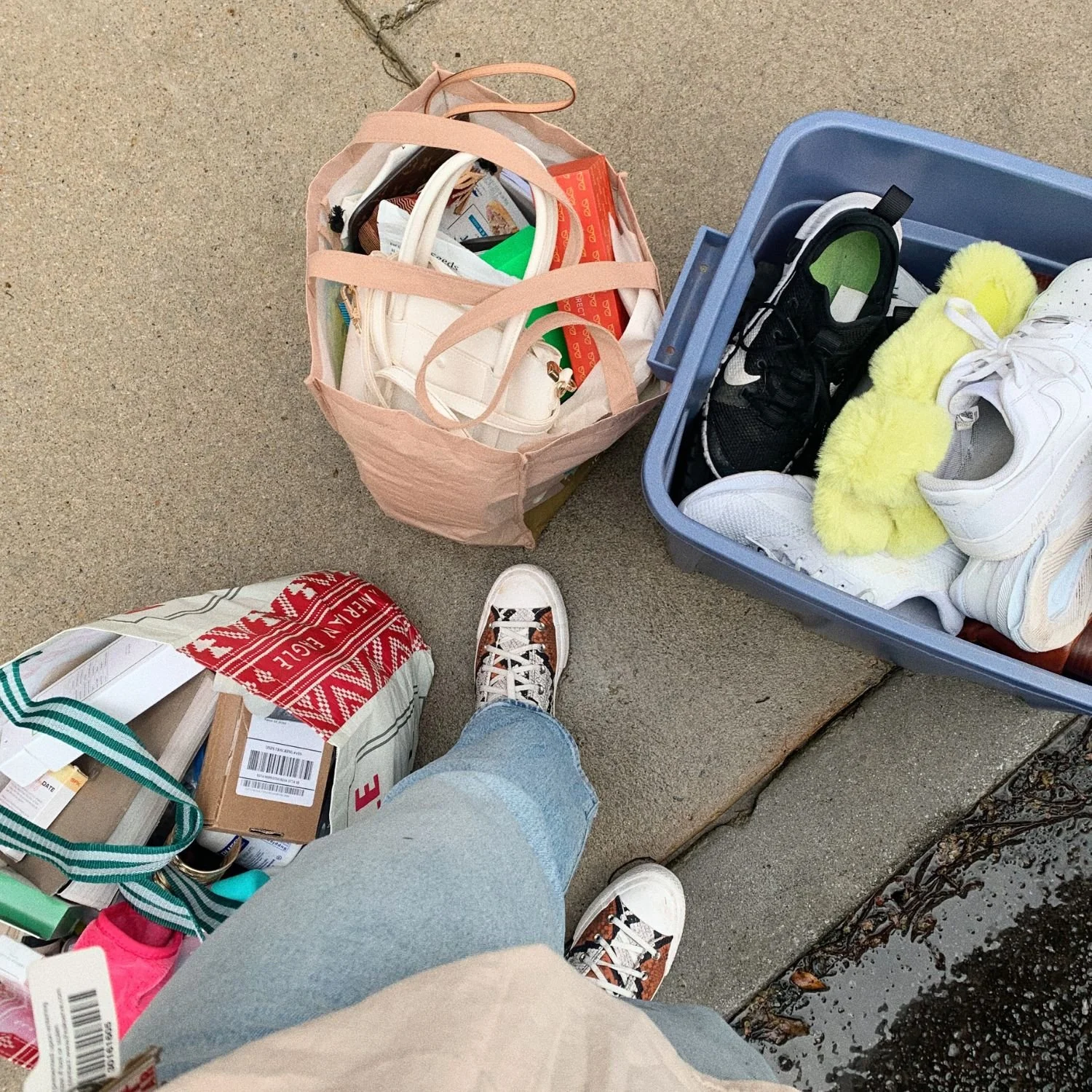Empty Nest Syndrome
When I booked our holiday for the tail end of summer, did I fully consider the whirlwind turnaround—coming home on Monday, only for the girls to head back to uni by Thursday? Well, sort of. I thought about the back-to-school tans, anticipated the mass exodus, made a couple of trips to the recycling centre, and ordered boxes for moving all that stuff back to uni houses (thankfully, the halls days are over!). But now it’s Wednesday, and while one trip has been made (whose bright idea was it to buy a Polo? Oh yes, mine!), toiletries have been stocked, and wardrobes emptied, we haven’t left any space to emotionally adjust.
Yet here we are again, sending off these incredible young women who fill our lives with so much joy, pride, and happiness. I know they’re only a couple of hours away, and they’ll be back for the holidays, but each time they go, and each time they return, they’re a little bit different—and so are we. Watching them take these next steps is something we’re so lucky to witness, but it doesn’t soften the grief, knowing it’s all ‘part of the plan.’
Clinical Psychologist Dr. Laura Williams on Empty Nest Syndrome
As students across the country prepare to leave home for university, college, or to begin their careers, many parents will experience a deep sense of loss and emotional upheaval. This is known as Empty Nest Syndrome, as Clinical Psychologist Dr. Laura Williams explains. Here, she lifts the lid on the often unexpected realities of the postparental period.
“As the parent of three young children and step-parent to two more, the concept of an empty nest seems a somewhat distant prospect for me. That said, as a clinical psychologist and someone widowed young, I do know a bit about grief and loss. Empty nest syndrome is a feeling of grief and loss and gives a visual representation of sadness that parents experience when their children leave the family home. It has also been termed elsewhere as the postparental period (Borland, 1982). It is not a clinical disorder or diagnosis, but it is well known that the effects can be psychologically challenging.
“Reflecting on this issue, it struck me that children leaving to foster a new life would suggest that we have been fortunate to raise healthy, independent young adults. Our children have learned and grown and have the confidence to ‘go it alone'—and this is a resounding triumph and massive stroke of luck. From an attachment perspective, they are leaving their secure base for good, perhaps. All the possibilities of their lives lie ahead of them. But what of the parents left behind?
“As with most things in life, there are two opposing sides to children leaving home and a delicate balance to be struck. In one way, it frees up time and energy for other things—perhaps meeting your own needs (remember those?) can now retake priority. But inevitably, as your role shifts and changes, parents can and, very often, do feel displaced. The research would also suggest that the feelings of loss that accompany an empty nest and the negated need for the hands-on parental role can predispose individuals to depression, overuse of alcohol, identity issues, and other psychological well-being difficulties. Interestingly, the psychological research confirms that women who have been highly involved in their mothering role, to the detriment of their own needs, are more susceptible in the postparental period (Borland, 1982).
“I asked parents following me on my social media channels about their experiences of children leaving home, and several themes emerged from a small sample of respondents. They reported enjoying seeing their children’s excitement at leaving home. They believed this transition was evidence of how grown up and developed their children had become and meant they were ready for the next stage. A few remarked jokingly on the savings made on utility bills and the joy of always having food in the fridge again. However, the challenges they noted were not seeing their children every day and worries about them coping independently with all that they would now need to do. One described the feeling as a ‘sense of loss, mixed with pride and sadness’.
“Interestingly, when I asked who they could potentially speak with about their concerns and feelings, some of these parents said they discussed it with their spouse or friends, while others suggested they felt they had no one to confide in about their fears and worries.
“Finally, I asked these parents if they had any advice they would have given themselves looking back on that stage in their life. Common responses were they would tell themselves not to worry so much and remember that their children did and, in fact, still need them. In addition, these parents spoke of allowing their children to go when they felt ready, as opposed to when, as a parent, they believed their child was equipped.
“The key here for me, though, is that this is often not a choice that parents make. As we know, children gradually begin to make their own decisions, and leaving home is such a fundamental and seemingly final one. It represents some of the last vestiges of our influence as their parents when they decide to make that leap. And where we lack influence and the ability to make a choice, we can run into some trouble.
“The last point stood out to me. It referenced kindness, letting their now-adult child make their own choices, and holding back from telling them how hard it would all be. Now imagine, just for a moment, that parent being able to take their own advice. To have kindness and compassion for their situation of losing a significant role in life. To shift the focus away from how hard it all is and consider what they have gained.
“So, if you or someone you love is struggling during this transition, what can be done? The first step is, as ever, to talk it over with someone, be they a spouse, partner, friend, or health professional. Transitions like this are a normal part of life, and speaking about it openly may help you gain perspective and perhaps feel less alone. As parents make this transition, it is also essential to find other areas in your life to exert your influence and personal autonomy and fill any void you may feel. Are there other interests you can focus on now you have some time going spare? Can you build a deeper connection with other family members or friends?
“Lastly, if you aren’t quite at the stage of actually having an empty nest, it may be time to start preparing. Subjugating your own needs across your parenting years is often unhelpful. If you can prioritise your own needs and parent simultaneously, this is likely to make the shift easier to adjust to. This is a lesson I need to tell myself often. So, off I go now to engage in some prioritisation of my needs first.
Dr. Laura Williams is a clinical psychologist, private therapist, writer, and speaker, specialising in trauma, anxiety disorders, eating disorders, and obsessive-compulsive disorder (OCD) as well as other obsessional issues.
Recently, Dr. Williams has contributed to TV documentaries exploring morbid obesity, hosts the podcast Know Your Own Psychology, and has a book slated for release in early 2025, What to Do When You Feel Broken: How to Let Go of Negative Patterns. You can follow her on Facebook and Instagram or visit her website at DrLauraWilliams.com.

